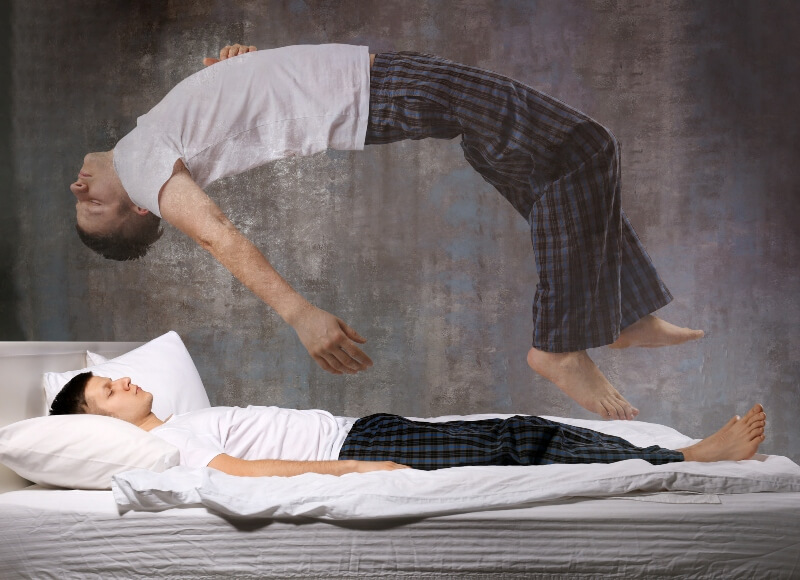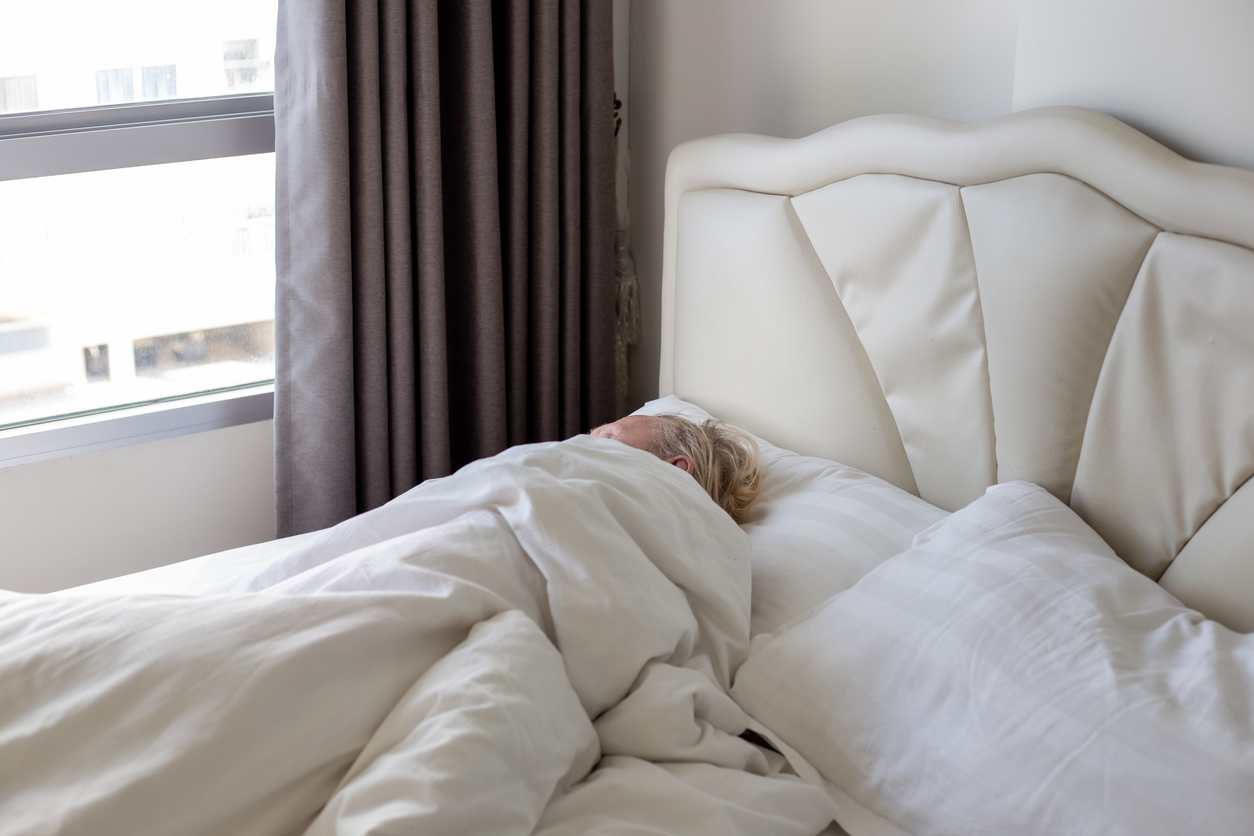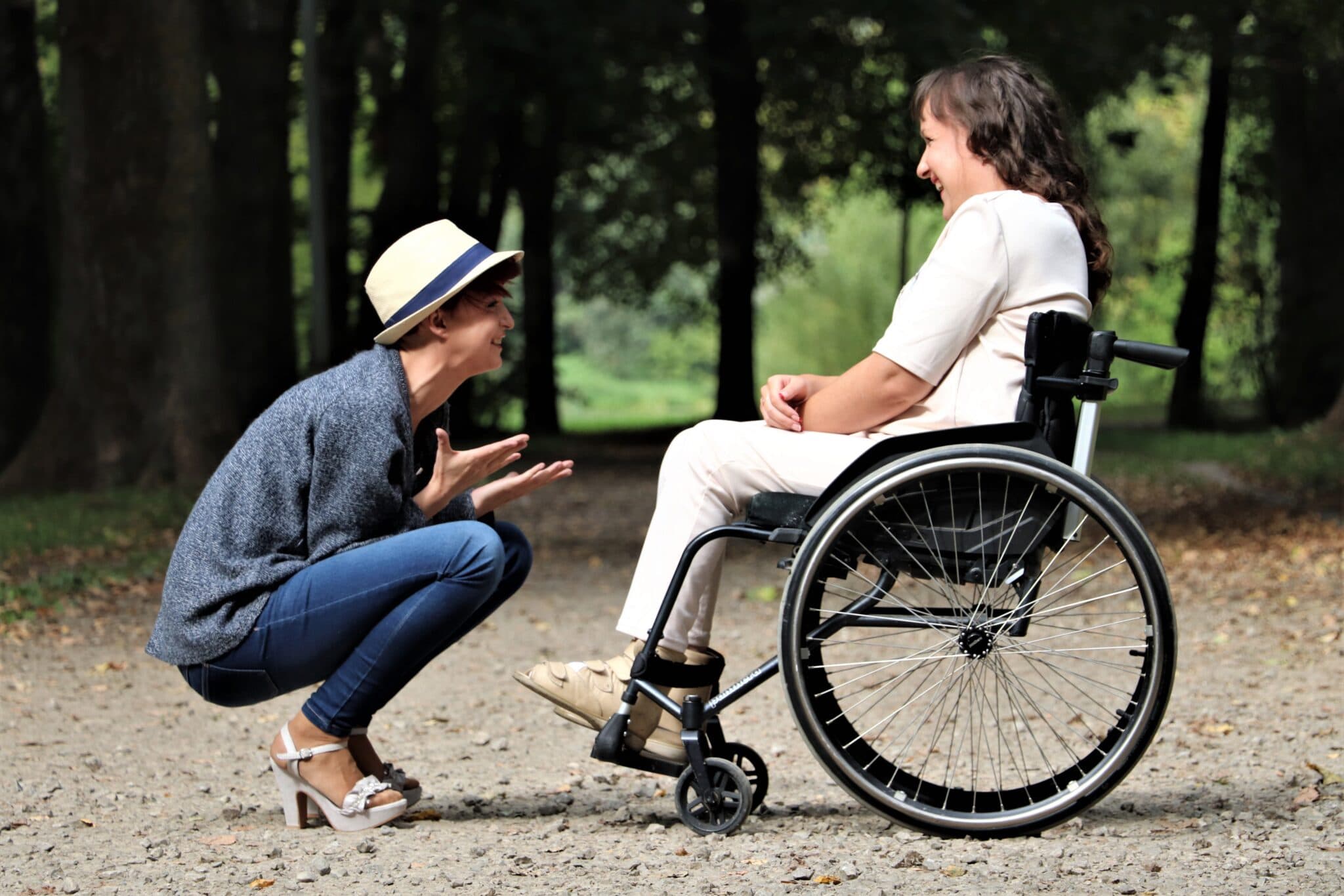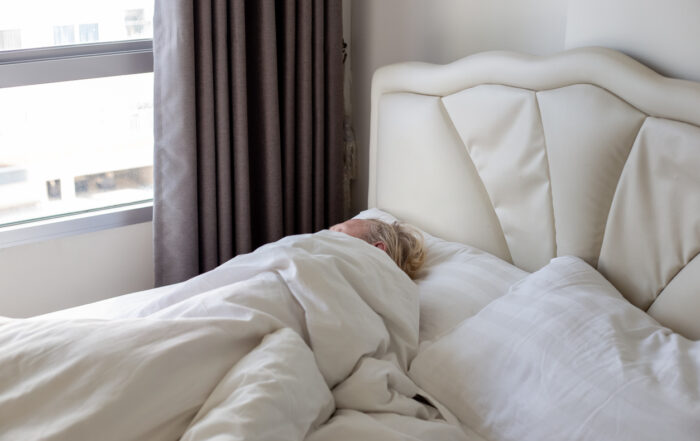How to Avoid Sleep Paralysis
Social Links
Generally, our bodies get pretty good at things we do a lot. Walking, talking, whistling, and saying “good, thanks!” when someone asks how we are – over time and with practice become automatic and we don’t have to think about them. You’d imagine, then, that waking up and falling asleep would come into that category – after all, we do them every day. For some of us, however, these simple actions are not always as easy as they should be.
Sometimes, humans can experience sleep paralysis (also known as night or dream paralysis) which happens either at the very end or very beginning of the day. It’s when your mind is awake, but you can’t move your body at all. It sounds scary – and it can be, for those who experience it – but fortunately, it’s harmless and doesn’t usually last very long. The other good news is that quite a lot of research has been done about it, so we have a good idea of the causes of sleep paralysis, and how to prevent it.
What is sleep paralysis?
Sleep paralysis is the feeling of being conscious but unable to move in the moments when we’re falling asleep or waking up. We’re aware that we are awake, but the body is still in sleep mode and therefore we’re temporarily paralysed. It’s caused by a phenomenon called circadian desynchrony, which means that your body’s rhythms aren’t coinciding with a normal sleep/wake pattern. In other words, your body is trying to be awake and asleep at the same time.
Most people will only experience sleep paralysis once or twice in their life. Even for those who do experience it more regularly it usually only lasts for a few seconds, and rarely longer than a minute or two. On the other hand, it’s much more common in shift workers and frequent travellers who are more prone to jetlag, as the irregular hours mean the body is producing melatonin – the hormone that triggers sleep – at times when we’re forcing it to be awake.
What are the causes of sleep paralysis?
There are several factors that can cause or increase the frequency of sleep paralysis, and they’re mostly to do with disrupted sleep patterns. Insomnia – caused by stress, anxiety, or even too much caffeine – is a common one. Conditions such as post-traumatic stress disorder (PTSD), panic disorder or narcolepsy can be triggers. Having a family history of night paralysis may also increase the possibility of its occurrence, as can certain medications and pretty much anything else that may cause your circadian rhythms to get out of sync.
As sleep paralysis occurs in the REM stage of sleep, which is when we’re dreaming, it can sometimes be caused by an external factor, such as a loud noise or physical contact that jolts our mind awake before the body is ready. It’s most common in teenagers and young adults, although it can occur at any age, and it’s worth noting that while dream paralysis is harmless, it may be a sign of a more significant sleep-related problem. So if you find that you’re tired all the time, scared or nervous about going to sleep or worried for any other reason, you should consult your GP.
Symptoms of sleep paralysis
Sleep paralysis is generally easy to self-diagnose. If you’re awake but can’t move – and you usually have no mobility problems – then that’s probably what’s going on. If you happened to have watched a horror or crime show before you went to bed, you might be forgiven for imagining you’ve been kidnapped and knocked unconscious, but it’s much more likely that your circadian wires have got a little crossed, and you just have to wait it out for a few moments.
Having said that, some people experience sleep paralysis differently than others. Some of the different experiences people have reported include:
- Being able to open or move their eyes
- Feeling frightened
- Feeling weighed down
- A feeling that someone else is in the room, or a presence that wishes to do harm
- Chest pain or shortness of breath
- Trembling or sweating
- Light-headedness and nausea
While this kind of night paralysis this is undoubtedly an unsettling experience, there are no lasting ill-effects. It may also help to remember that though you can’t move, you’re safe and warm in bed, and once the symptoms subside you can either go back to sleep or get up and go about your day as usual.
How to avoid sleep paralysis
As it’s usually triggered by disrupted or poor-quality sleep, the best approach to how to avoid sleep paralysis is to eliminate the issues that cause the problem; in other words, practice good sleep hygiene.
Try to get at least six to eight hours of sleep a night, ideally at the same time, and avoid over-stimulation before sleep. This includes eating a large meal, doing vigorous exercise, or even watching something exciting or scary on the television. Avoid caffeine in the later part of the day, don’t look at screens before bedtime, and try and switch to warm or yellow lights after the sun goes down.
At the same time, try and do activities that enhance sleep, such as gentle exercise or yoga in the evening, meditation, listening to music, reading a book, taking a bath, or even cuddling a pet. You should also make sure you have a comfortable and supportive bed to sleep on, and replace your mattress when it starts to get old.
If your sleep disruption is caused by an underlying issue like anxiety or PTSD, talk to a doctor or another professional about getting some treatment, which will help you sleep. If dream paralysis, or any general sleep problem, is affecting your ability to function during the day, that is another sign that you should consult your GP.
Is sleep paralysis related to nightmares?
Nightmares are dreams that are upsetting, disturbing and usually quite vivid, and invoke feelings of fear, anger, sadness or guilt. Although these feelings may linger after we’ve woken up, it’s not the same as sleep paralysis, which occurs when the mind is fully conscious. However, it wouldn’t be unusual for one to occur along with the other, as many causes of sleep paralysis, including stress, anxiety and general insomnia, have also been shown to increase the frequency of nightmares.
This has been even more apparent than usual in the past couple of years. In fact, studies have found that reports of nightmares increased significantly during lockdowns, particularly among frontline workers. Interestingly, another study recently conducted by the Mobility Furniture Company, found that the most common dream meaning searched in the UK was teeth falling out, which is often interpreted as a metaphor for a loss of control. Is it possible that the dream could be triggered by a fear of sleep paralysis, an actual loss of control? Or is it more likely to be a result of the restrictions and extra rules we’ve all been obliged to follow recently? Either way, neither condition is harmful – although if you do find your nightmares are increasing in frequency or intensity, it might be worth looking into, in case there’s an underlying problem that needs addressing.
Can where you live affect your sleep?
It may sound unlikely, but yes, it can. Environmental factors including light pollution or noise from busy streets or aeroplanes – more common in cities – can interrupt our sleep patterns, as can neighbours, who tend to be much closer in urban areas. City living is also associated with big buildings which can feel oppressive, social isolation, poor air quality and less access to green spaces – all factors that can negatively affect our mental health and consequently the quality of our sleep. Therefore, it’s possible that living in a city may increase the chances of dream paralysis or nightmares.
As it’s estimated that more than half the world’s population lives in urban or built-up areas, this is a concerning piece of information. Fortunately, there are few steps you can take to alleviate the problem, which don’t include selling up and moving to the country – although there’s no reason you can’t do that too, if you want to. Simpler solutions include finding your local park or nature reserve and going there as much as possible, meet your friends and peers in person when you can, invest in some thermal or light blocking curtains, and maybe have a word with the neighbours about noise after a certain time.
The bottom line
Sleep paralysis is nothing to worry about, even if it’s not a very pleasant experience. But if you’re still wondering how to avoid sleep paralysis, the best way is to maintain a good sleep pattern so that your circadian rhythms, and the hormones that trigger sleep, don’t get out of sync.
A comfortable bed is, of course, the key to a great night’s sleep – and that’s easy to address via a quick call to The Mobility Furniture Company who will bring beds to your home for you to try out.
If you think your sleep-related problems might be causing more frequent sleep paralysis, or that sleep paralysis is contributing to a new sleep-related problem, then you should consult your GP or another health professional. There are plenty of ways to improve your sleep quality, and there are resources available for those that need a little extra help. After all, don’t we all deserve a good night’s sleep?
*This website contains general medical information. The medical information is not advice and should not be treated as such. Read our full Medical Disclaimer here.



